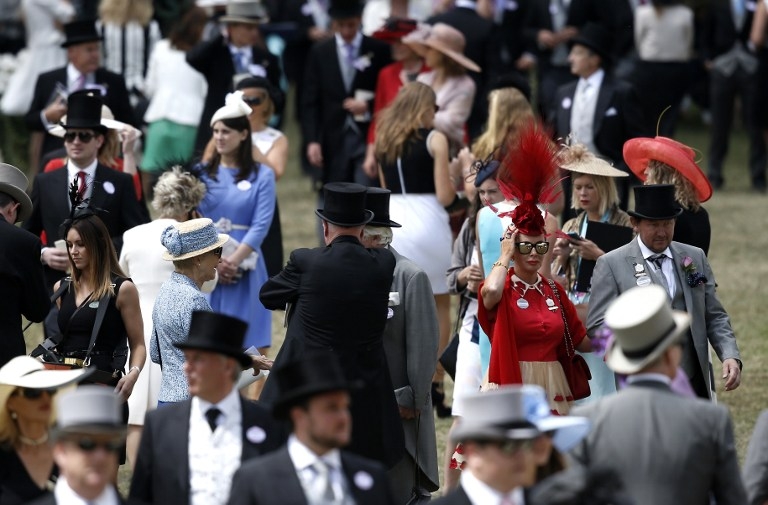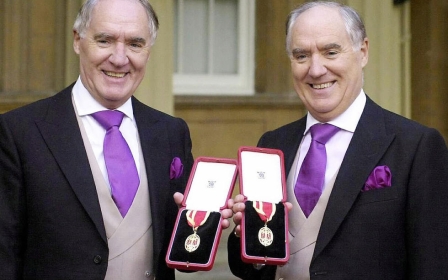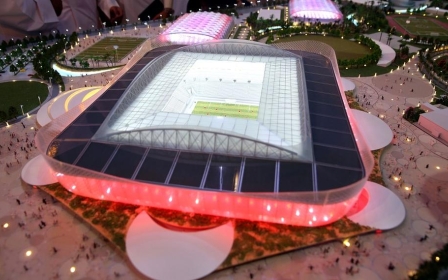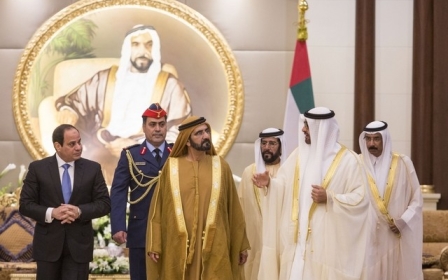The great Gulf rivalry comes to Royal Ascot

The rivalry between these two neighbours has ignited proxy wars all over the Middle East - in Yemen, Libya, Syria - such is their mutual antipathy and untold wealth. Last year, one even threatened to join a blockade against the other.
But all this was foreplay. Now it’s serious. Who this week was going to gain the upper hand at Royal Ascot - Qatar or the Emirates?
This week a new arena of competition and rivalry came into the open: horse racing. For the last 30 years the UAE (mainly thanks to the enthusiasm of Mohammed bin Rashid al-Maktoum, otherwise known as Sheikh Mohammed, UAE prime minister and Emir of Dubai) has built up a famous racing empire in Britain.
The royal blue colours are a familiar sight on almost every British racecourse. There are those who say that given the scale of their investment the Maktoums should have been more successful. Nevertheless, they have owned some of the most brilliant horses of the last quarter century, of which the greatest was Dubai Millenium.
Sheikh Mohammed was so devastated when the horse contracted grass sickness very early in its stallion career, that for several nights he slept beside the dying animal in its stable. The Sheikh is a greatly revered figure in British racing and nobody doubts the depths of his love for his horses.
Now, an upstart challenger has come along. While the Maktoums built up their racing programme slowly, the Qataris have emerged almost overnight. They are big owners and breeders, just like the Maktoums, with immense ambition. It is whispered that they recently tried to purchase Juddmonte Farms from the Saudi owner and breeder, Khalid bin Abdullah al-Saud, but the offer was refused. They already own Treve, probably the greatest racehorse of its generation, two times winner of the Arc de Triomphe.
Unlike the Maktoums, they have also involved themselves very heavily indeed in the sponsorship of British racing. Traditionally Royal Ascot - the 300-year-old meeting which is the greatest glory of the British racing calendar - has refused to sully itself with commercial sponsorship.
Its greatest races such as the Gold Cup and the St James’s Palace Stakes remain unblemished by sponsors’ names. However an exception has been made for the Qataris. Last year Qipco, a Qatari investment company, was unveiled as an “official partner” at the royal meeting. The Qataris have also thrown their muscle behind the famous Goodwood meeting in August and the new championship of British racing. They have been welcomed into the heart of the British racing establishment, which particularly on the flat is still defined by its regal connections and the abiding personal interest of the Queen. This move has been facilitated by Lady Elizabeth Anson, a cousin of the monarch.
There have been moments of tension. Charles Moore, the biographer of Margaret Thatcher, recorded in his Spectator diary last year the rumours that Sheikh Hamad and in particular his mother, the Sheikha, were dismayed to learn they were travelling only in the third royal carriage, after lunching at Windsor Castle with the royal party before the meet. In consequence they returned to London before the racing began.
Relations were soon smoothed over. The Qataris are now paying for the refurbishment of the Castle of Mar, a royal residence in the north of Scotland favoured by the late Queen Mother. Some in racing question the wisdom of the depth of royal involvement with the Qataris, especially now that Qatar is being investigated for alleged corruption in connection with the Fifa World Cup bid.
There are two main factions in Qatari racing. One is associated most closely with the family of Sheikh Hamad, who unexpectedly resigned as Emir of Qatar two years ago. His son, Sheikh Joaan, has hired Harry Herbert, son of the late Earl of Carnarvon, the Queen’s racing manager from 1969, as his own racing advisor and his interests are felt throughout Al Shaqab, which is the owner of Treve. He is investing heavily in bloodstock and is expected to expand much further in England and Ireland.
Meanwhile the family of Sheikh Abdullah bin Khalifa al-Thani (the former Prime Minister of Qatar who is believed to be one of the richest men in the Middle East) has also developed strong racing interests. Qipco is his family investment company. His son Sheikh Fahad is recognised as a genuine racing fanatic. He recently shed four stone, no mean achievement, in order to take part in a horse race himself. The two Qatari families are said by insiders to enjoy uneasy relations. Insiders assert that Sheikh Fahad, for obscure reasons, has been held back in some of his racing ambitions.
The UAE and Qatari racing sheikhs compete almost daily on British racecourses. Relations between the two sets of race goers are always civil and they even do business with each other. The Qataris have sent several mares to Godolphin stallions this year. Whether the two rival Gulf states can duplicate this sensible working relationship back home in the Middle East is another matter entirely.
- Peter Oborne was British Press Awards Columnist of the Year 2013. He recently resigned as Chief Political Columnist of the Daily Telegraph. His books include The Triumph of the Political Class; The Rise of Political Lying; and Why the West is Wrong about Nuclear Iran.
The views expressed in this article belong to the author and do not necessarily reflect the editorial policy of Middle East Eye
Photo credit: Racegoers walk through The Royal Enclosure during the fourth day at Royal Ascot, in Berkshire on June 19, 2015. The five-day meeting is one of the highlights of the horse racing calendar. AFP)
New MEE newsletter: Jerusalem Dispatch
Sign up to get the latest insights and analysis on Israel-Palestine, alongside Turkey Unpacked and other MEE newsletters
Middle East Eye delivers independent and unrivalled coverage and analysis of the Middle East, North Africa and beyond. To learn more about republishing this content and the associated fees, please fill out this form. More about MEE can be found here.





